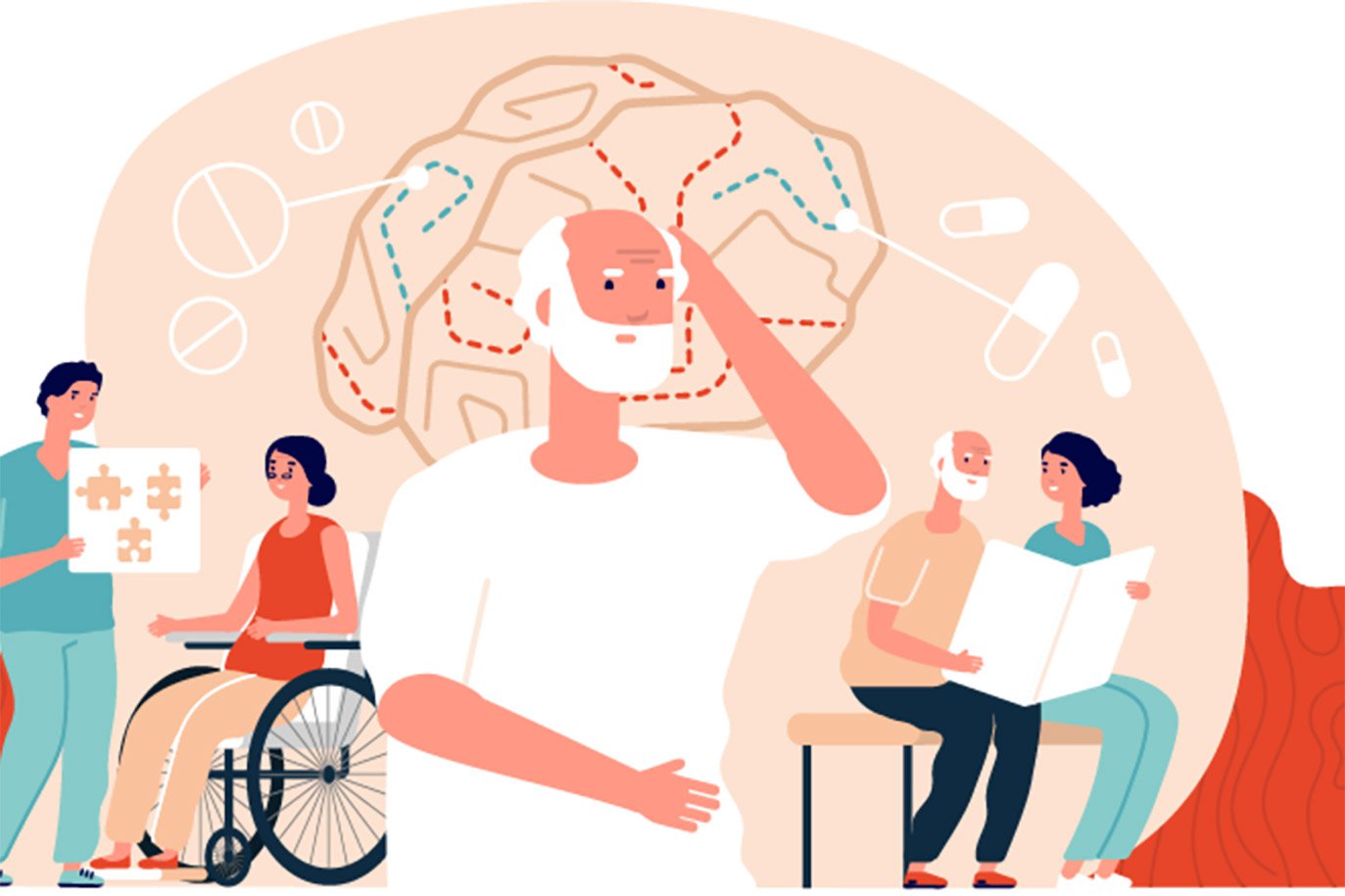
In the context of Alzheimer Awareness Month, l'Appui met Sandra Asselin, Development Director for the Alzheimer Society in Estrie to learn more about their initiatives.
Sandra Asselin: The Alzheimer Society offers services to family caregivers and to people suffering from the disease by welcoming them for a day with us or by offering respite at home. These services had to be rethought and adapted.
When the announcement was made in spring that gatherings were no longer allowed, we closed the Colibri, a day centre where we welcomed people with dementia. This summer, when our region was classified yellow, we were able to reopen, but in a way to respond to our new reality. We could now accommodate 6 participants instead of 10, which allowed us to respect social distancing rules. We also had to limit movement inside the centre. This proved to be a challenge since people had the habit of moving around freely throughout the day and during workshops. Then, we closed again in November.
To mitigate the closure during the first wave, we produced a series of five television episodes that aired on the community channel which featured games and activities aimed at our participants. The program presented association games and riddles as well short videos on reminiscence, a technique that encourages the re-emergence of memories that were thought to be forgotten.
Since our participants could no longer come to the centre, we created and provided them with a games and activities kit to use at home.
SA: Surprisingly, they are coping well with it. Obviously, many of them miss socializing. They have somewhat lost that aspect.
For people with dementia, the more difficult aspect of the pandemic is the inability to get out. In the context of home respite, a support worker would normally go out with the participant for coffee, go for a walk, play bowling or billiards, etc. But now, everything happens at home. When they visited public places, they would see other people, even if they didn’t know them.
SA: We have offered a lot of phone support. We have taken the initiative to call our program participants to see how things were going at home, check if they had questions or if they needed advice. We also offered training workshops by video conferencing.
We developed our services and now have an advisor that offer in-house service. We will soon provide online conferences. We are looking for new ways to reach our participants.
SA: People were relieved because many feared that we would close during the pandemic. None of our services were completely cancelled; rather, they were all reviewed and adapted.
SA: We have learned to adapt quickly. Despite all that, we look forward to offering the services we had before the pandemic. There is a strong demand for them.
SA: There is an increase in demand for services, so we are adapting accordingly. More and more people need services and an increasing number of them want to stay longer at home. We are here to support family caregivers but also people suffering from Alzheimer’s.
We put a lot in training so that caregivers who interact with people suffering from the disease can develop their skills to provide the appropriate care to them. We train caregivers and nursing staff.
SA: On the Quebec Alzheimer Society Web site – The 20 Quebec societies are part of the Canadian Alzheimer Federation, but each society has its own Internet site. We recommend visiting your region’s Web site to find out which services are offered.
To learn more about the services offered in your region, visit the Alzheimer Society Web site and click on Change your society from the top right “About us” menu.
Also visit "Alzheimer's disease and other neurodegenerative disorders" on L’Appui’s site to learn more about this disease that affects approximately 153 000 people in Quebec.
Don’t forget that Caregiver support is there to listen to you and offer support and guidance. Don't hesitate to contact us by phone at 1 855 852-7784, or by e-mail.
Need to talk?
Contact our Caregiver Support Helpline for counselling, information and referrals.
Every day from 8 a.m. to 8 p.m.
Free of charge.